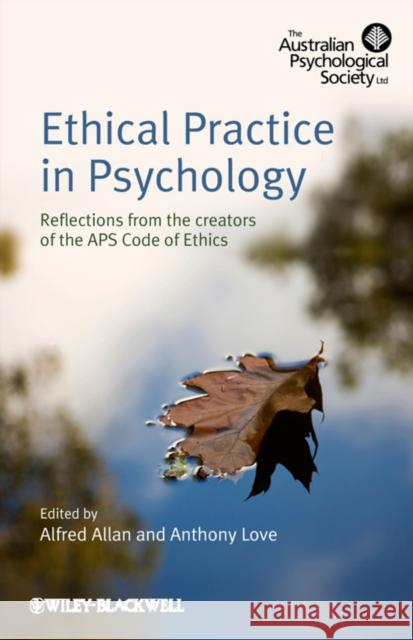Ethical Practice in Psychology » książka
topmenu
Ethical Practice in Psychology
ISBN-13: 9780470683651 / Angielski / Miękka / 2010 / 232 str.
Close-up insights on how experts in the field are re-interpreting ethical principles to create workable policies for today and tomorrow, from the creators of the 2007 APS Code of Ethics
- First cooperative project between Wiley-Blackwell and the APS
- Offers a close-up view of how enduring ethical principles are reinvented to ensure lasting relevance in times of modernisation and professional change
- Will be an accredited option for APS Professional Development - the book will be built into PD workshops and also available for PD credits outside that context
- Essential reading for those involved in healthcare ethics internationally











